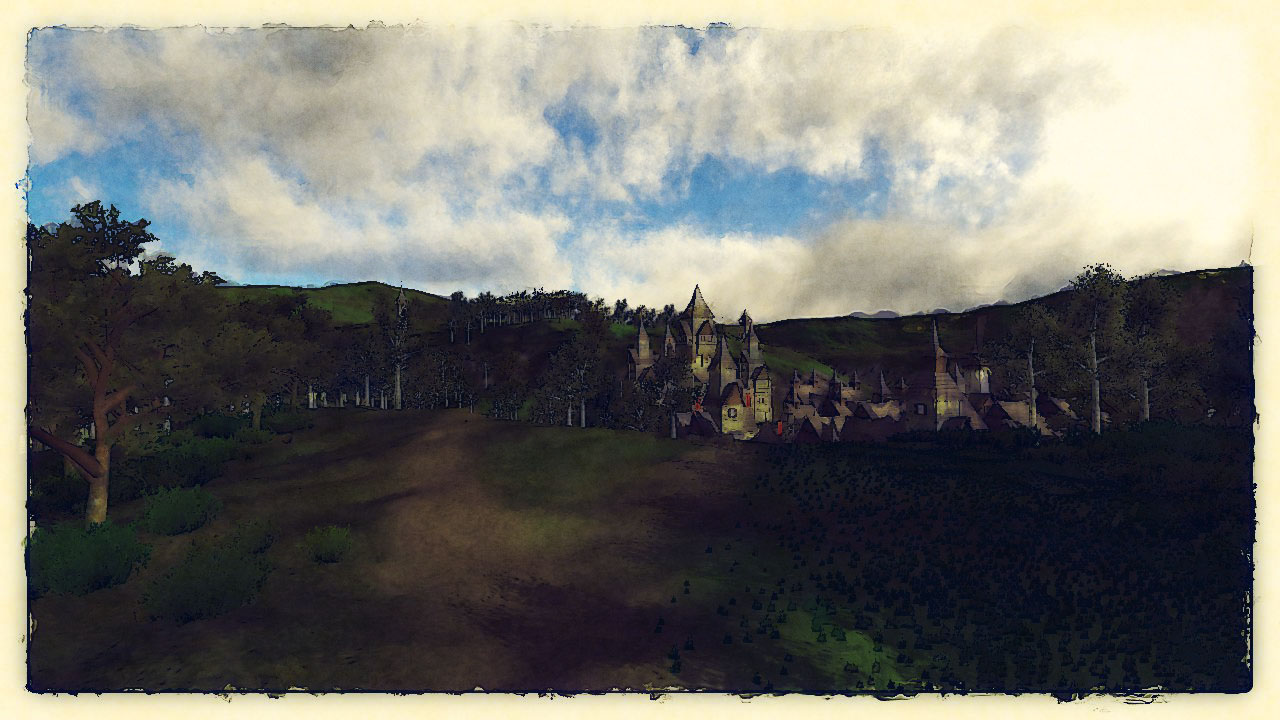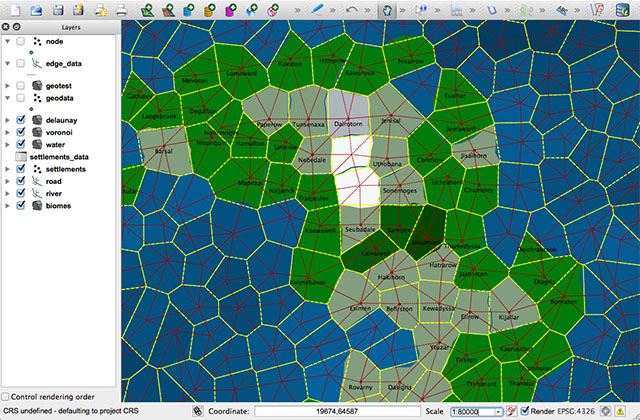


Might & Fealty is an entirely player-driven, persistent world where history is being made, not just replayed.
A roleplaying game, a strategy game, a political and negotiations game.
A simulation of a medieval / low-fantasy world not in the sense of realistic physics, but in the sense of having humans with human motivations and personal ambitions as the driving forces.
There is no predetermined storyline or victory condition. In fact, there is no victory in the sense that it ends the game, the whole game is designed to last forever and remain playable for many years. That does not mean re-play, it means one continuous history of the world. History created, written and interpreted by players.
Might & Fealty started, in 2013, as the project of Tom Vogt. A few years later, in 2017, it properly became the project of its players, who have picked up where he left off, with the goal of making it the best possible game it could be.
More than a game, it is a political and social sandbox. It is not even a simulation, it is the real thing in a smaller box. The first, more gamey and primitive incarnation of this - BattleMaster - has been so close to real life at times that it has sparked interest in teachers, history freaks and university professors.
The main properties of Might & Fealty are emergence and freedom. There is no game-developer-provided story, and yet there will be hundreds of stories. Real stories, not made-up ones. 10 years from now, there will be an actual history. Wars, revolutions, empires and kings that really existed, not just inventions of a story writer.
Unlike most games, the approach we take resembles the uncertainties and ambiguities of real life. You are the good guys not because the game defines so, but because you say so. And your enemies say the same thing about themselves. The actual gameplay emerges from player-to-player interactions on all levels. It is unpredictable, ever-changing and thrilling. And it is more varied and interesting than the best writing team could ever generate.

There are a number of core philosophies behind the design of Might & Fealty. These concepts guide everything about the game.
The idea of a sandbox is that the game does not limit the players. The core thought is:
You can do anything - but everything you do has consequences.
So there should never be a point where the game says "you cannot attack this person" or "you cannot loot this village". The only rules the game enforces are the laws of physics. If you don't have enough resources to build a castle, then you can't do it. But interactions between players - both hostile and friendly - are entirely free. The game should enable these, and not prevent them.
The game is made for eternity. Everything gets recorded, nothing important ever gets deleted (some items have a limited lifetime, of course). Characters and accounts, for example, will stay around. Sure, your estates will be conquered by other players, but when you come back three years later, your characters will still be there, with all their history intact.
History does not exist if nobody is there to write it down. The game keeps a record. If you want to know who was the lord of the town you just conquered two years ago - you can look it up.
The game should enable interaction with other players and should make them necessary and rewarding. It should not force them into pre-determined paths, but allow for any kind of political system, hierarchy and organisation to evolve.
Emergent behaviours and structures should form the social network of the game, allowing for the maximum amount of player freedom. The game mechanics should cover only the most important data points and leave everything else to players to shape and form as they desire.
The game economy should not be subject to unlimited exponential growth, but instead adequately simulate a medieval world with limited resources and very limited options of increasing productivity. The game is not about everyone building up trying to build faster than others. Such a game would by necessity be limited in time and not (see above) eternal.
Instead of growth, Might & Fealty places exchange. Trade, tribute or plunder shift resources around the game world and allow some to prosper at the expense of others. Every city in the game should exist because a number of other places have not been grown into cities - there simply are not enough resources for every settlement to be a city.

Using a comfortable interface, the game is a mixture of turn-based and immediate actions. The basic game-mechanics concept is that everything takes time to complete. Actions where your character simply orders them and they then progress on their own are initiated immediately and then updated over time. For example, if you order the construction of a market place, the order is given immediately and you are done, but it will take some time for the construction work to be completed.
Actions that require your character to actually do something are planned and put into an action queue. When you are offline, your character will work through the action queue. Everything takes time, be it travel or the attack on an enemy castle. The fact that things take time also gives other players time to react to your activities, but since you have a real life as well, you can set up standing orders that last until you remove them. If you want to defend a village, or your king, simply define that as a standing order and if they get attacked, your character will automatically react.
As development of the game continues, we plan a deeper integration of the game into the tools of your daily life, allowing you to receive notifications about important in-game events on any channel you prefer, so that you do not have to check the game constantly for anything happening, but can be free of worry knowing that if something requires your attention, you will be notified.

Not only in its concepts, but also in its implementation is Might & Fealty ambitious and somewhat unique. Some of the technology employed for the game is familiar, some has rarely been seen in the context of games.
Front and center, Might & Fealty is a text-focused, browser-based, online role playing game played through any modern internet browser.
Eventually, we may offer alternative ways for you to interact with the game on a similarly complex level (like a full fledged API) or through a modified format suitable for smaller devices, but when, or if, those will ever happen remains to be seen.
On the server-side, the game is built on the Symfony 6 framework with a powerful PostgreSQL database behind it.
But that is just scratching the surface. The real power for many parts of the game comes from running the game world on a full-blown GIS dataset. In less technical terms, Might & Fealty does not use artifical gamey maps, but the same technology that Google Maps and other real-world mapping systems use. In fact, the screenshot on this page is from Quantum GIS, a software used by universities, land developers and public service departments to handle real-world geospatial data.
Through the use of GIS, the game uses actual locations and distances instead of abstractions or tiles. Travel times and pathfinding work the same way as your navigation system and can react to a changing game-world where roads get built or bridges destroyed. The areas covered by estates are not arbitrary, but mathematically determined as the area closer to this settlement than to any other (voronoi cells). There is height, humidity, biome and other data for every spot on the map. All spiced up with a bit of fractal noise to make it more life-like.
This approach is also future-safe. In the future, we could decide to make borders between estates arbitrary or change the course of rivers or make deforestation possible or really any other change. Or we could go into more detail in the map and add smaller rivers, ponds or detail landscape features to any level we desire. In theory, we could go down to the level of individual trees without having to change anything in the backend engine.
Developing and running Might & Fealty is not free, so we charge a small monthly fee to play.
We believe in using a transparent, simple payment system instead of the various "Free2Play" or "Pay2Win" models that nag you about "premium features" constantly. In Might & Fealty, we want you to enjoy the game to the max without hiding features away into parts you have to pay extra for. There are, however, a few small limitations on free accounts.
Read more about our payment concept.
The price for 100 credits is 1 € or the equivalent in your local currency (our payment providers will automatically convert currencies for you).